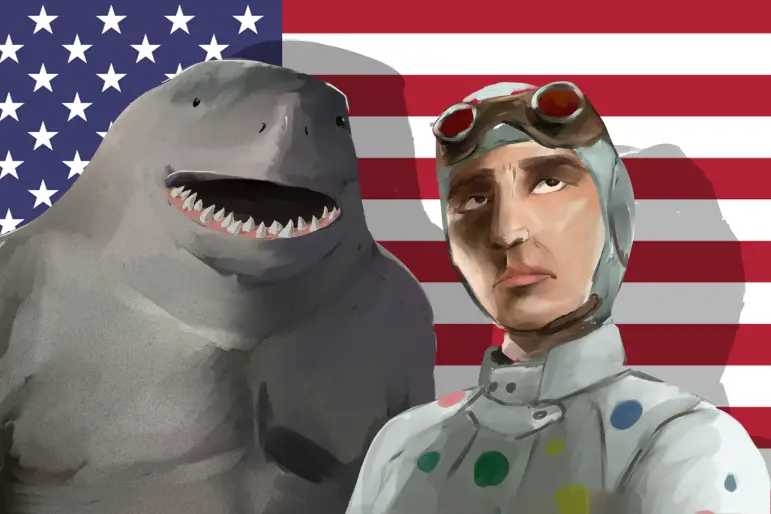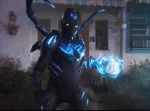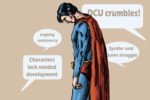The DC Extended Universe has a sloppy track record — and I say this as an avid fan of DC. Good movies are few and far between, with 2016’s “Suicide Squad” among the most widely detested of the bunch. But James Gunn’s “The Suicide Squad” more than makes up for its obnoxious predecessor. Since its release on Aug. 5, people have praised the movie for its fight scenes, dark humor and devious characters, not to mention Margot Robbie’s fantastic return to her role as Harley Quinn. And just as the movie provides a comedic breath of fresh air against DC’s less successful projects, it also openly confronts the imperialist politics at the root of the genre.
American Prisons: The System Within a System
This doesn’t come from nowhere. The very premise of the titular Suicide Squad (also referred to as Task Force X) is steeped in politics and has been since its conception. A cold American government official, Amanda Wallace, is left in control of a group of less-than-willing prisoners who are sent on the kinds of grisly, pro-U.S. missions that superheroes won’t even touch. It’s a metaphor for the mistreatment of incarcerated people that is so blatant it barely counts as a metaphor at all.
Task Force X relies on the use of prisoners as forced labor, and the dehumanization of prisoners is clear from the opening scene. The movie quickly introduces the initial roundup for the squad, which consists of a quirky medley of prisoners, and we watch as they are killed, one by one, on the beach of a foreign nation.
Their lives are not treated with dignity or respect. Wallace’s workers even bet on who they think will die, and this isn’t treated as an uncommon event in their office. If Wallace disapproves, it is only because of how unprofessional her colleagues are, not out of any moral objection, and her callousness continues throughout the film. True to form, she cares only for the advancement of American interests.
After that gory start, we go back in time to a montage of our main character, another prisoner — one who is not on some dangerous mission, but on cleaning duty. Bloodsport, or so people call him, only agrees to join the mission after Wallace threatens to incarcerate his daughter in Belle Reve.
From the get-go, the movie refuses to frame the American government as a moral institution. It is a figure that looms over every single character in the movie, even when the main characters leave the country’s borders for Corto Maltese.
The Glory of Foreign Intervention
After the movie introduces us to the actual Suicide Squad, Amanda Wallace gives us their mission, which is misleadingly simple. We learn that a dictator has taken over Corto Maltese, a fictitious island nation in the Caribbean, and moreover, he now has access to a strange research project that could be easily exploited for militaristic purposes. (Interestingly enough, the scenes in Corto Maltese were filmed in Panama — a country with its own complicated history with the U.S.)
Naturally, the notion that American officials prioritize global security is a fantasy. Our heroes are not the heroes, nor are they inclined to help the people of Corto Maltese. They don’t have the best interests of anyone but themselves in mind, and this colors their every move.
But perhaps the most chilling scene is one that could easily pass as comedy. As the team heads off into Corto Maltese, Wallace tells them to use whatever means necessary to save Rick Flag, who is located in the middle of some armed encampment. In a misunderstanding for the ages, the group shoots, stabs (and, in at least one instance, eats) their way through their nameless enemies.
Bloodsport and Peacemaker, whose names are as diametrically opposed as their characters, turn this mission into a competition, as each attempts to out-kill the other. But — surprise! — they are not in the midst of a military camp, but a rebel one. Rick Flag is actually a guest of the Corto Maltesian rebels, and these two foreigners have just marched in and killed most of them without a second glance. Hooray for foreign intervention!
This scene, which pokes fun at imperialist incompetence and reminds us of how little governments prioritize human lives, was controversial from its conception. James Gunn marvels that it even made the final cut. But the dual comedy and cruelty hammers in an ongoing theme: Any pretense of humanitarianism is exactly that. A pretense.
Peacemaker Vs. Rick Flag (America Vs. Itself)
As its plot revolves entirely around American political machinations, the commentary of “The Suicide Squad” is also exemplified in the two most American characters: Peacemaker and Rick Flag.
Peacemaker is a sharpshooter who espouses peace and liberty at multiple opportunities, though this is not indicative of his moral character. Instead, as Bloodsport points out, “Liberty’s your excuse to do whatever you want.” Antagonistic from his very introduction, Peacemaker serves as a foil to both Bloodsport (who slowly grows out of his toxic shell) and Rick Flag.
Rick Flag, the American soldier whose very name oozes with patriotism, is easily the most sympathetic to the Corto Maltesians. If Peacemaker is a parody of American exceptionalism, Rick Flag stands for American idealism. It’s only natural that, as the movie grows tenser with each passing minute, he and Peacemaker come to a brutal stand-off.
In the big twist of “The Suicide Squad,” the team learns that Wallace didn’t send them to prevent complete catastrophe, but to cover up American involvement. Americans started the offshore experiments, killing hundreds in the process, in a not-so-subtle callback to the U.S. government hiring Nazi scientists after World War II and the CIA’s long history of unethical experiments.
The question is, then, what to do with this information.
Obviously, Peacemaker and Rick Flag end up in violent disagreement. The two grapple savagely over a small disc containing information that could change the world. The message of the scene is clear: Neither the self-interest of “peace” nor the selflessness of truth can co-exist.
The audience is clearly meant to root for one over the other, but there’s another element at play — Rick Flag is only allowed to be the good guy because his own life is not at stake. He holds a level of privilege that Peacemaker does not, a privilege that allows him to have the moral high ground without risking his skin. The nuances of their fight (and the inevitable victor) reveal an incredible amount about the conditions of American imperialism — its philosophical implications, its effects on its own citizens and the danger it poses to the rest of the world.
Admittedly, “The Suicide Squad” is not absolute in this critique. Rick Flag’s characterization purports that there is a good version of American hegemony. He is an undeniably positive presence to the rebel forces, and as he stands for an ideal of Western democratic liberalism, there is a lurking insinuation that an American-backed insurgent group is superior and more democratic than the blatantly corrupt anti-American government. But there is an implicit understanding that even this noble vision of foreign peacekeeping operations cannot stand under a regime that prioritizes American goals over all else.
So Where Does “The Suicide Squad” Leave Us?
The film ends with multiple twists and unsavory reveals. On one hand, our not-so-heroic heroes save the day. On the other, they leave an undisclosed number of dead (brown) bodies in their wake and withhold important information to preserve their well-being. True, we watch some happy scenes of people celebrating in the newly liberated Corto Maltese, to the dubious credit of our protagonists, but there is no triumphant return.
The implication is that, corruption aside, the Suicide Squad was technically a force for good. That they, and by extension, the imperial forces that created them, are responsible for the newfound liberty and democracy in Corto Maltese, regardless of how many people died in the process.
The movie consistently walks a delicate line between giving us a satisfying conclusion and continuing its critique of American imperialism. Unfortunately, it’s hard to do both. Superhero movies are not exactly the prime avenue to discuss the faults of American foreign policy, and although the protagonists might not exactly be heroes, they are still unable to break free of the same restrictions placed on every superhero before them. And by the end, American imperialism is the one villain left standing.
I still love “The Suicide Squad” for what it is. It shows us how incompetent, corrupt and fundamentally selfish governments can be, and it rarely ever pulls any punches. Besides, the plot is great. I’ll admit that it’s far from revolutionary, but Gunn gives us a gory, disturbing and sincere deconstruction of the superhero genre that acknowledges where previous movies fell flat. Flaws aside, the end result is something to admire.

















